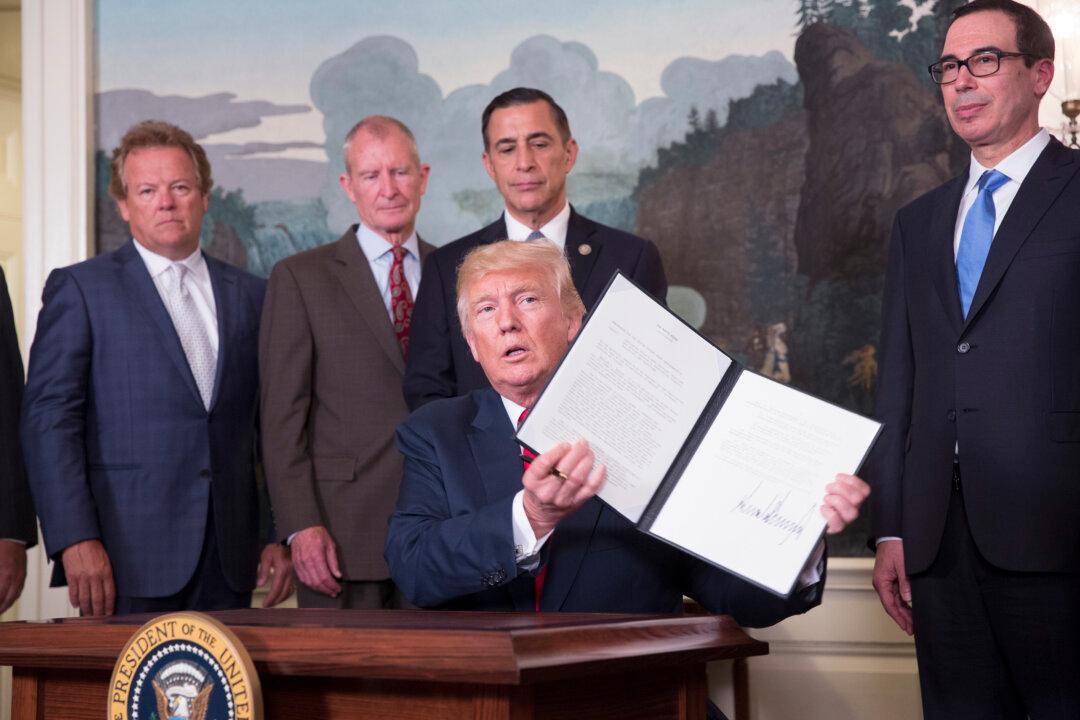President Donald Trump is following through on his campaign promise to protect American innovation and technology.
On Aug. 14, Trump signed a memorandum to tackle China’s trade practices with regard to the theft and forced transfer of American intellectual property (IP). The memorandum directs U.S. Trade Representative Robert Lighthizer to determine whether a formal investigation into China’s trade policies is needed.
“The theft of intellectual property by foreign countries costs our nation millions of jobs and billions and billions of dollars each and every year,” Trump said before signing the memorandum.
“For too long, this wealth has been drained from our country while Washington has done nothing,” he said, criticizing former administrations’ trade policies.
According to the IP Commission report by the National Bureau of Asian Research, the annual cost of IP theft to the U.S. economy could be as high as $600 billion.





